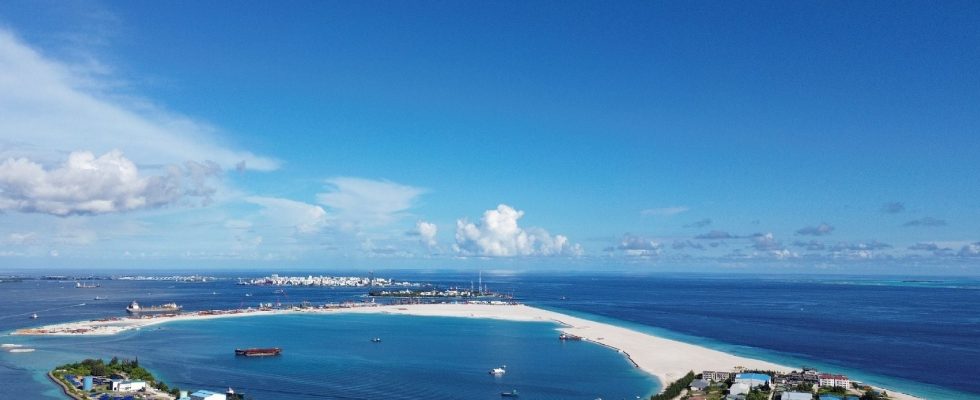In the turquoise waters of the Maldives archipelago, New Delhi has just suffered a serious geopolitical setback to the benefit of its great Chinese rival. Immediately elected, the new pro-Beijing president Mohamed Muizzu asked, at the end of November, India to withdraw its troops present in this country of around 400,000 inhabitants, torn for several years between the two Asian giants. “An agreement has been reached to withdraw Indian military personnel,” the Maldivian leader said in early December. With this announcement, the one who campaigned with the slogan “India out” made an electoral promise come true.
But New Delhi seems to be putting pressure on keeping its 70 men and military equipment there. “Discussions on how to keep them operational are ongoing,” Foreign Office sources said. India has radars, helicopters and planes on site used for observation operations in territorial waters, but also medical and humanitarian evacuations. The Indian Navy also patrols around the archipelago, located at a highly strategic crossroads of the Indian Ocean, on one of the busiest shipping routes in the world.
The dispute over the withdrawal of troops illustrates the battle for influence between India and China. A high-end tourist destination, famous for its white sand beaches and luxury hotel complexes, the archipelago of 1,192 islands is crossed by the major east-west shipping lanes through which some of the oil coming from the Gulf passes towards the ‘Asia. The Maldives allows New Delhi to monitor ships passing through the Laccadive Sea, at the southern tip of India, linking the Bay of Bengal to the Arabian Sea. For Beijing, the archipelago is located on its navigation axis, both military and commercial, towards Africa, the Red Sea and Europe. It is part of China’s “string of pearls”, already well established in the ports of Chittagong in Bangladesh, Hambantota in Sri Lanka, Gwadar in Pakistan and Kyaukphyu in Burma.
Historical allies of New Delhi, the Maldives, located 600 kilometers from the Indian coast, began a pro-Chinese shift from 2013, when the archipelago joined the “new silk roads”, which aim to develop Beijing’s influence through major infrastructure projects. A free trade agreement is signed, construction sites multiply. A Chinese group replaces an Indian competitor for the modernization of Malé international airport. The Sinamalé Bridge, also called the “China-Maldives Friendship Bridge”, linking the capital Malé to the island of Hulhumalé, symbolizes this rapprochement. But the archipelago is paying a heavy price: in 2018, due to Chinese loans, the debt had swelled by almost 1.5 billion dollars, for a GDP of less than 9 billionnotes in a note Michael Kugelman of the Wilson Center, in Washington.
However, the situation turned in favor of New Delhi in 2018 with the election of Ibrahim Mohamed Solih. India announces financial aid of 1.4 billion dollars and builds numerous infrastructures, including a bridge – even larger than that of China – which connects the capital to three other islands. New Delhi also trains members of the Maldivian defense forces and civil servants. The Maldives are in fact part of the strategy of India and the United States, aiming to act as a counterweight to China in the region. Washington signed a defense agreement with Malé in 2020, notably due to the proximity of the archipelago to the American naval base of Diego Garcia, an atoll located in the Indian Ocean.
Despite his decision to expel Indian troops from his country, Mohamed Muizzu knows that he has a lot to lose by quarreling with New Delhi. “The new Maldives government does not have the maritime capabilities to ensure its security alone,” said Aditya Gowdara Shivamurthy, researcher at the Observer Research Foundation in New Delhi. The president, “who campaigned on the sovereignty of the Maldives, also wants to show that he is not outrageously pro-Chinese”, continues the researcher. Moreover, for his first visit abroad, this leader of a Muslim republic chose to go… to Turkey.
